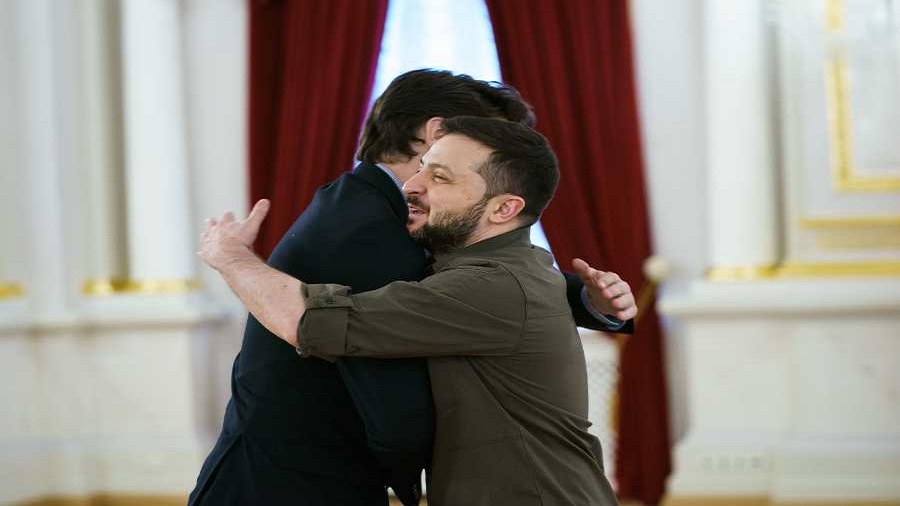Just before President Vladimir V. Putin of Russia presided over Victory Day in Moscow with a parade of powerful weapons, President Volodymyr Zelensky of Ukraine released a video on Monday in which he walked alone through the streets of Kyiv.
“On the day of victory over Nazism, we are fighting for a new victory,” Zelensky said as he walked past government buildings protected with barriers and barbed wire. “The road to it is difficult, but we have no doubt that we will win.”
The slickly produced video was an attempt to turn Putin’s justification for his invasion of Ukraine against the Russian leader.
The Kremlin has offered multiple rationales for its invasion, but Putin has repeatedly returned to the false argument that the Ukrainian government is run by Nazis who were oppressing and even committing a “genocide” against Russian-speakers across Ukraine. In his speech at the start of the parade on Monday, he again cast his invasion as a fight against Nazism.
It is a lie that military analysts say has played a role in undermining the Russian invasion — with Russian soldiers surprised that they were not greeted as liberators.
Ukraine’s defence minister, Oleksii Reznikov, said this weekend that by destroying mostly Russian-speaking cities in eastern Ukraine, Russian soldiers “essentially took revenge and retaliated further against Russian-speaking Ukrainians who did not meet them with flowers, as they had dreamed they would”.
In his video, Zelensky turned Putin’s argument on its head, accusing him of carrying on the legacy of Adolf Hitler and the forces of fascism.
Ukraine’s 20th century history is complicated and stained with blood. Much of what is present-day Ukraine became a republic of the Soviet Union after World War I and suffered through a famine in the 1930s under Joseph Stalin’s leadership. When Germany invaded the Soviet Union in 1941, many Ukrainians, especially in western Ukraine, saw the Germans as liberators, according to historians.
Ukraine’s insurgent forces led by Stepan Bandera fought alongside the Nazis against Soviet forces for a period of the war, and some Russians still cite that as evidence of where Ukrainian sympathies lie today.
But for many Ukrainians offers no justification for Russia’s aggression today.
New York Times News Service











